Bufarenogin
Bufarenogin is a bioactive compound extracted from toad venom, known for its potential therapeutic properties, including anticancer and cardiotonic effects.
Bufarenogin Product Overview
Bufarenogin is a remarkable compound derived from toad venom, embodying a powerful synergy of ancient wisdom and modern scientific research. This bioactive substance, belonging to the family of cardenolides, is celebrated for its therapeutic potential, particularly in the realm of cancer treatment and cardiovascular health.
Key Features
– Potent Bioactivity: Bufarenogin is renowned for its strong bioactivity, influencing cellular processes with precision and efficiency.
– Anticancer Potential: Preliminary research highlights its capability to induce apoptosis in various cancer cell lines, offering a new avenue for oncological treatment strategies.
– Cardiovascular Support: As a cardenolide, it exhibits properties akin to digitalis, supporting heart function and demonstrating potential in treating heart-related conditions.
– High Purity: Our Bufarenogin is isolated and refined to ensure the highest purity, providing researchers and healthcare professionals with a reliable compound for study and therapeutic development.
– Versatility: Suitable for a wide range of experimental and therapeutic applications, including in vitro studies, drug development, and more.
Applications
Bufarenogin has garnered attention for its versatile applications in both research and potential therapeutic use. It is primarily investigated for its:
– Anticancer Activity: Explored for its ability to target and effectively induce cell death in cancer cells, offering hope for novel cancer therapies.
– Cardiovascular Therapy: Its cardiotonic effects are under investigation for potential use in treating heart diseases, mimicking the effects of traditional heart medications with possibly fewer side effects.
– Pharmacological Studies: Utilized in pharmacological research to understand the mechanisms of cardenolides in disease treatment and management.
Functions
Bufarenogin functions through a complex interplay with cellular mechanisms, primarily by:
– Inducing Apoptosis: It triggers programmed cell death in cancer cells, a mechanism critical for halting the proliferation of cancerous tissues.
– Modulating Ion Channels: Influences the activity of sodium/potassium ATPase, which is pivotal in maintaining cellular ionic balance, impacting heart muscle contractility and cancer cell viability.
– Regulating Signal Pathways: It may interact with various signaling pathways involved in cell growth, apoptosis, and heart function, presenting a multifaceted approach to disease management.

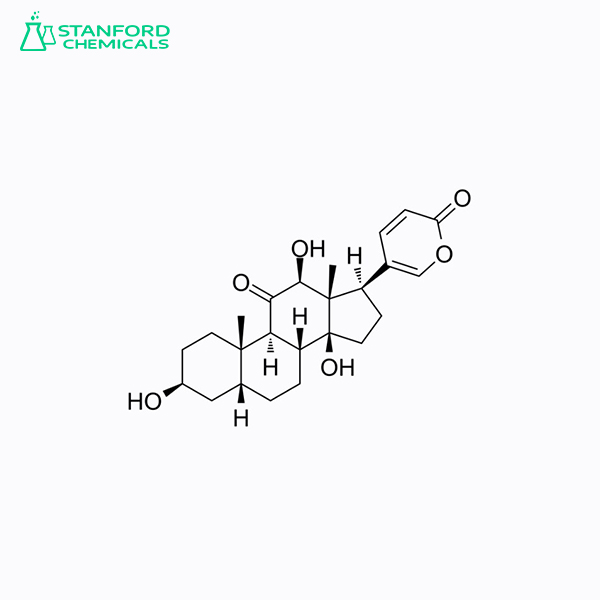
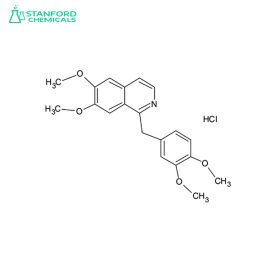
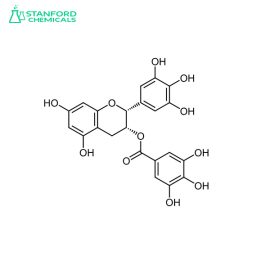
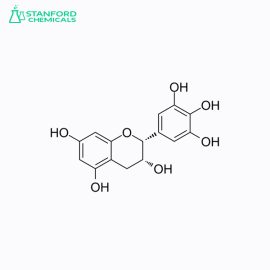
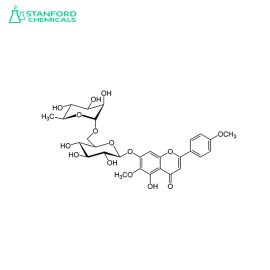
Reviews
There are no reviews yet.